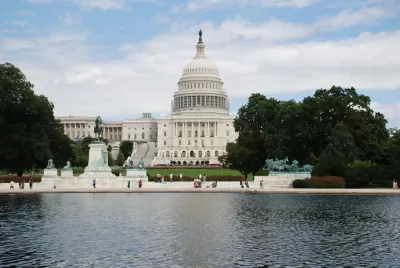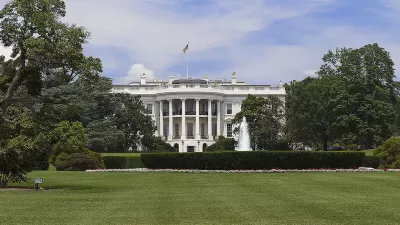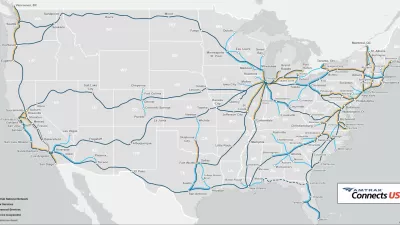The Build Back Better agenda is in retreat—including much of the substance on a plan to spend $330 billion to tackle the nation's housing affordability crisis.

Negotiations over the federal budget reconciliation bill, which includes several components of critical importance to the planning field, such as the Infrastructure Investment and Jobs Act, took a turn at the end of October.
Jersulem Demsas reports on how the budget bill has transformed the Biden administration's Build Back Better agenda—a key promise of the Biden campaign during the election and a frequent talking point in the White House as the Covid-19 pandemic has lingered. Demsas describes the evolution of the Build Back Better in dire terms:
This package was both a once-in-a-generation investment and also barely enough to scratch the surface. Now, even those proposed investments are being cut down as part of negotiations over the final package.
More concerning, according to the article, is the bill's avoidance of the root of the problem. To elaborate this point, Demsas interviews Paul Williams, a fellow at the Jain Family Institute, for details of the new, adjusted Build Back Better plan regarding issues like the Housing Trust Fund, down payment assistance, exclusionary zoning reform, and more.
A planning-specific component of Build Back Better, the "Housing Supply and Affordability Act," is still in the reconciliation bill, according to Tweets by the Planners' Advocacy Network of the American Planning Association. Williams, however, doubts the grant program is substantial enough to "swing the pendulum for a lot of jurisdictions, particularly those with some of the most egregious policies."
FULL STORY: Congress isn’t going to save the housing market

Maui's Vacation Rental Debate Turns Ugly
Verbal attacks, misinformation campaigns and fistfights plague a high-stakes debate to convert thousands of vacation rentals into long-term housing.

Planetizen Federal Action Tracker
A weekly monitor of how Trump’s orders and actions are impacting planners and planning in America.

In Urban Planning, AI Prompting Could be the New Design Thinking
Creativity has long been key to great urban design. What if we see AI as our new creative partner?

King County Supportive Housing Program Offers Hope for Unhoused Residents
The county is taking a ‘Housing First’ approach that prioritizes getting people into housing, then offering wraparound supportive services.

Researchers Use AI to Get Clearer Picture of US Housing
Analysts are using artificial intelligence to supercharge their research by allowing them to comb through data faster. Though these AI tools can be error prone, they save time and housing researchers are optimistic about the future.

Making Shared Micromobility More Inclusive
Cities and shared mobility system operators can do more to include people with disabilities in planning and operations, per a new report.
Urban Design for Planners 1: Software Tools
This six-course series explores essential urban design concepts using open source software and equips planners with the tools they need to participate fully in the urban design process.
Planning for Universal Design
Learn the tools for implementing Universal Design in planning regulations.
planning NEXT
Appalachian Highlands Housing Partners
Mpact (founded as Rail~Volution)
City of Camden Redevelopment Agency
City of Astoria
City of Portland
City of Laramie





























